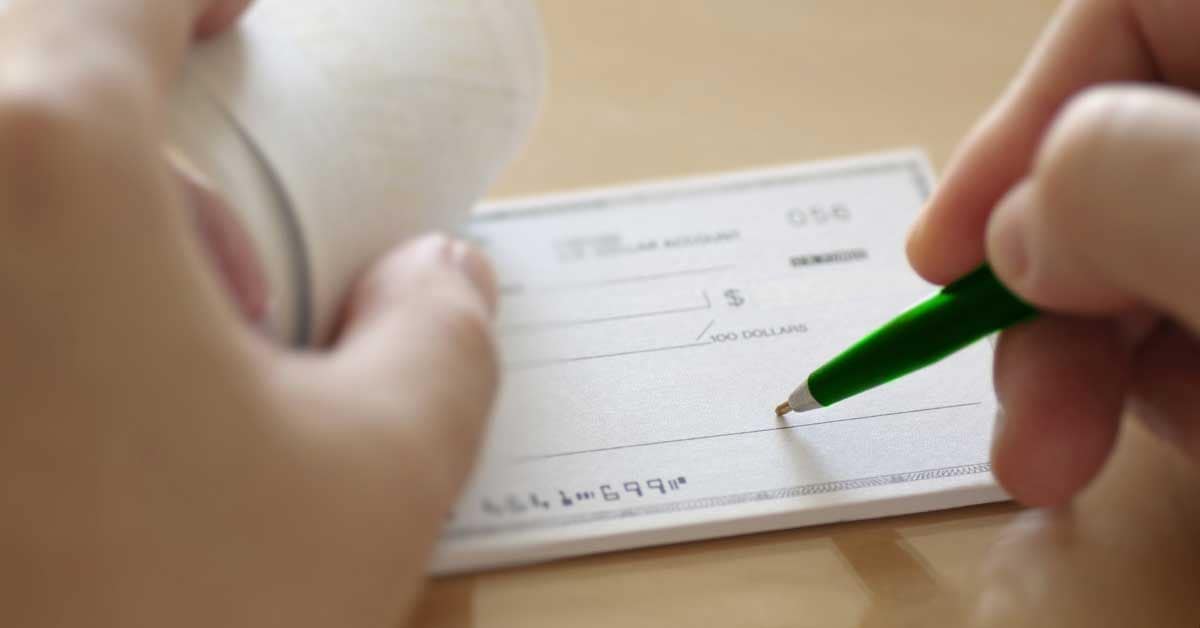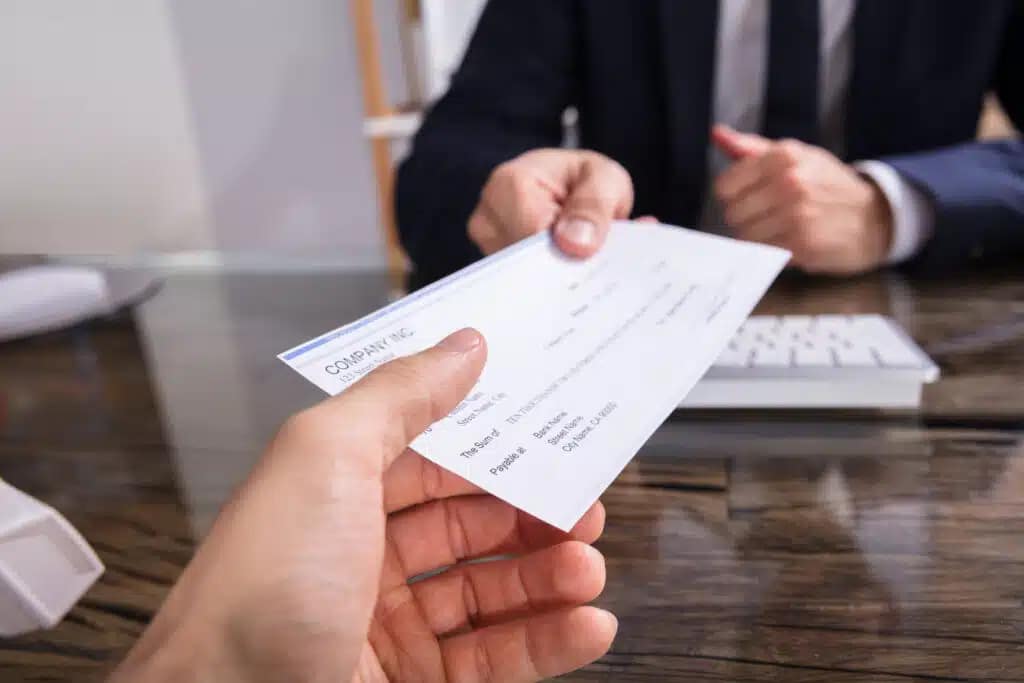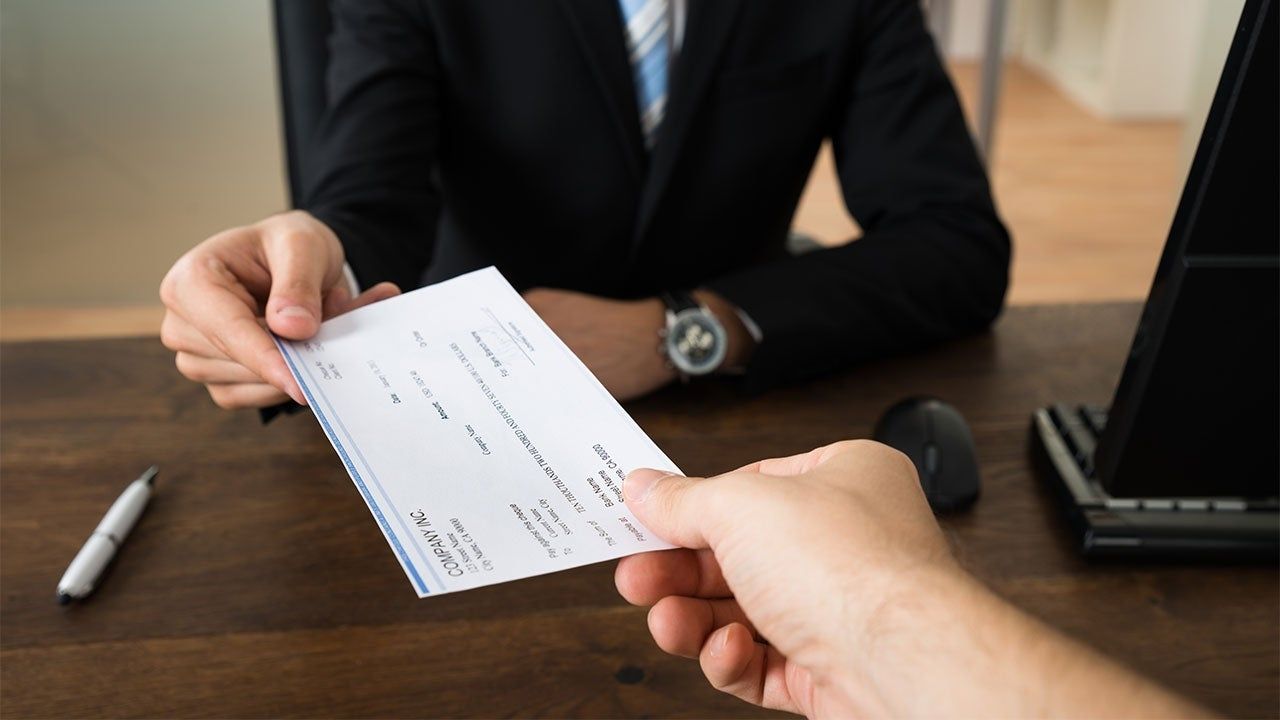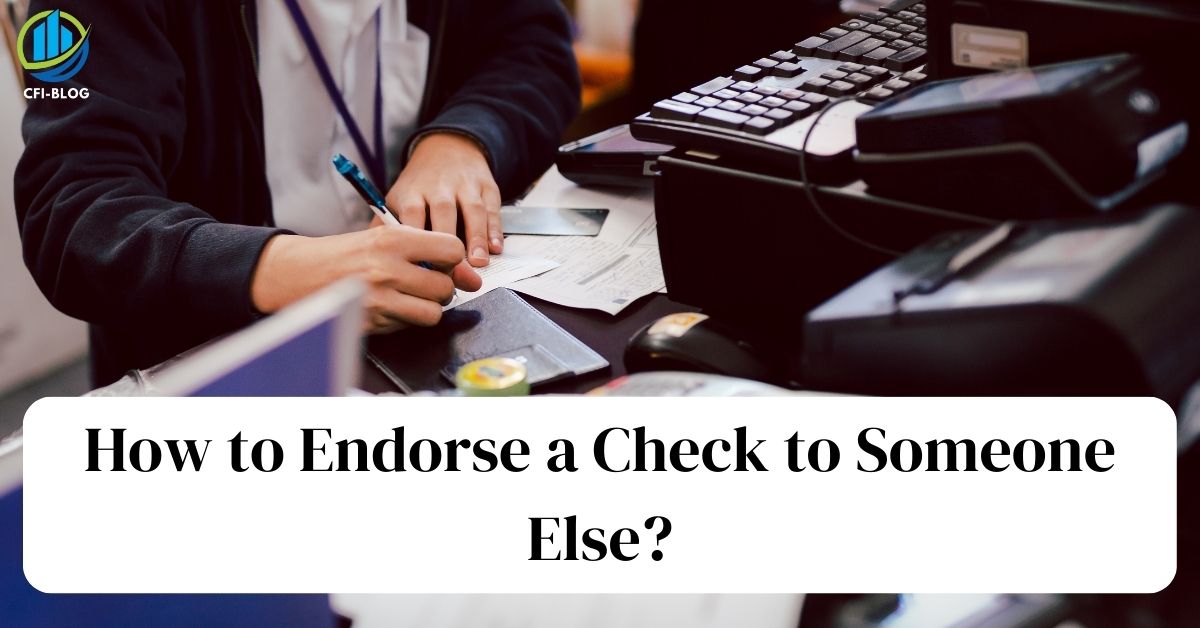Imagine that you have to deposit a check into your account. Unfortunately, you fail to fulfill the job for some reason, which can range from sickness to emergency work. Similarly, think about your friend being stuck in the same position, also unable to make a deposit. Now, he asks you to deposit a check for them as a favor; what would you do?
Is it even possible, endorsing a check to someone else? Well, it is possible, but there are various ways to achieve it, some simpler than others. This is because not every bank is flexible, and they will not allow transferring checks to somebody else. They often ask for various documents, and only permit them based on the fulfillment of certain terms and conditions. This article will help you learn how to sign a check to somebody else and what things to keep in mind during the whole process.
How to Endorse a Check to Someone Else?

Though it is possible to sign a check for someone else, there are various factors that decide someone’s ability to do so. The biggest challenge is getting approval from the bank to cash a check without a valid ID, hoping they accept checks and do not require third-party checks or approval.
But, it is not always possible for the process to be smooth because sometimes the banks may not accept checks or defy restrictions toward federal checks or state checks. So, always do your research and go through the terms and conditions thoroughly before depositing any check as your financial condition and personal financial security could be drastically affected in case of fraudulent activity. Not only if you endorse a check for someone else but also when you ask if can I deposit a check for someone else.
When Should You Sign a Check to Someone Else?
There is a myriad of possible reasons why you may be endorsing a check to someone else or thinking about it. If you live far away from the branch and it is not physically feasible for you to visit the bank, you may not own a smartphone, or your account might not support mobile deposits.
Additionally, it could be convenient to sign a check off to someone else to save time. It can seem simpler to avoid using your banking account and pay an individual or entity sooner if you owe them money.
Ways to Sign a Check to Someone Else
If you think you can you deposit a check for someone else, there are five essential procedures to do so, even though you might be eager to complete the check and continue with your life, after finishing your task of how to endorse a check to someone else fast. Without wasting any more time, here are the proper methods to hand a check over to somebody to prevent future issues.
- Always make sure your recipient is pleased with this payment choice first by speaking with them. Even though it might seem simple, the first step is to be open and honest with the recipient. Before you try to before signing a check over to someone, be sure they are ready and willing to sign it.
While this may not happen frequently, recipients may be concerned that banks will refuse this payment. Communicate in advance to prevent authorizing a paycheck to someone who might not take it. Give them your complete name and phone number if they agree to proceed with the procedure.
- You have another choice if the individual whose check you are depositing is unable to give you a deposit slip. If indeed the recipient is able to sign their name on the check, they can put “For Deposit Only” and the account number where they want the amount to be deposited in the endorsement space.
Similar to a deposit slip, this is referred to as a restrictive endorsement and it offers very little potential for error. Hence, if you use this option, you shouldn’t run into any issues with the bank.
- If you are wondering how can you deposit someone else’s check in your account then you can follow this simple step, where the endorsement line can be found by turning the check over first. This usually says “endorse check here” and is situated either on the right or left along the length of the check.
Once you’ve located it, put “Pay to the order of receiver name” below your signature on the first line. This demonstrates to the cashier that you have given permission for the check to be transferred to a third party. The cashier will double-check the recipient’s identity before cashing it out, so be sure to type out the recipient’s name exactly as it stands on their document.
- The payment should now be given to the recipient. Exchange contact information with your receiver before your meeting if you haven’t already done so. They will be able to get in touch with you if anything goes wrong, such as the bank refusing to accept the money. Get in touch with the beneficiary to make sure the check is cleared.
Choose a more secure option, if you or someone else involved in the transaction feels concerned. In particular, for larger transactions, certified checks, which are approved by banks as an additional secure payment method, can be a superior payment option. Moreover, government-related transactions, like cash your stimulus check, are generally safe.
What are the Risks of Signing a Check to Someone Else?

There are still certain risks to be aware of even if you are endorsing a check to someone else:
- The bank could need more time to process a third-party check. The check may be completely rejected by your bank as well. Hence, it’s crucial that the individual whose check you’re depositing understands that they could not immediately get access to the money.
- You risk going over your balance and incurring overdraft penalties when you don’t have sufficient funds in your account to pay the check.
- You can be liable for the entire check’s value if you cash a false check. Moreover, your account could be terminated or frozen. Make sure to notify the Federal Trade Commission (FTC), the U.S. Postal Inspection Service, your state’s Attorney General, and your community police department, if you believe that you have been defrauded in any way.
- Someone approaching you and requesting you to redeem a check for them is a classic fraud tactic. In exchange for $950, they can ask you to pay a $1,000 check. And the next thing you’ll discover is the check bounced.
Instantly, your account will be debited by $1,000 if you cash a check without ID checking the person thoroughly. With this, the con artist will have successfully taken a huge amount from your bank account. Make sure the individual signing the check over to you, or writing the check, is someone you can trust, before you deposit it. You can end up being held responsible if the check bounces.
What are the Alternatives to Sign a Check to Someone Else?

- You might easily cash a check at an ATM. Nowadays, the majority of banking apps provide online transactions and digital check deposits. You can transfer money online or immediately head to your neighborhood ATM to cash a check at the ATM. Use the mobile app for your bank or other applications like Venmo or CashApp to accomplish this. If you wonder “can you write a check to yourself”, you can. Remember that the majority of ATMs and banks that aren’t affiliated with the bank might impose service charges.
- Opening a bank account can be a very good alternative when signing a check to someone else. These days, bank accounts can be pricey. To keep accounts open, many banks impose service charges, and many financial institutions are fee-based. Many Americans are under or unbanked as a result of these fees. It can be challenging to convert a check into usable money if you don’t have any form of a bank account. Luckily, a lot of internet banks provide checking accounts without a monthly cost. Also, it may get you exposure to beneficial financial products that you’re able to use to strengthen your financial situation.
Frequently Asked Questions (FAQs)
Q1. Can I deposit a check that is not in my name?
If you think about how to sign a check over to someone else, then that all relies on the regulations of your bank. A third-party check may not be accepted by all banks, and some might have certain guidelines you must follow in order to transfer or cash one.
Q2. What do you write on a check to endorse?
If you would like to sign the check to a different individual, enter “Pay to the Order of” & their name beneath the “Endorse Here” line. After that, add your signature. The check will then be given to the individual listed on the check’s back so they can deposit or cash it.
Q3. Can someone else cash my check if I endorse it?
You might sign the check to a different individual as one of your options. You’ll need to confirm that the service provider and their bank can recognize a signed-over check, commonly known as a “third-party check,” and endorse the check by writing the back portion as the verification is presently payable to you.
Q4. Who is allowed to endorse a check?
The payee must endorse the check back in order to get the money. An indication that the individual who authored the check is the recipient and intends to receive the funds is made by this signature, known as an endorsement, to the credit union or bank that issued the check.
Q5. Can you write a check to yourself?
Absolutely, as long as you don’t write a check for an amount greater than what you have in your bank account, writing a check to yourself is allowed. Writing a check for an amount you don’t have and then attempting to cash it would be against the law.
Conclusion
You don’t need to worry if you are thinking can I deposit a check for someone else or worrying about endorsing a check to someone else. Although the process can be really long and difficult, it is not impossible. There are various banks that offer the same benefits to you like agreeing to their terms and conditions. But, with this process, there come a lot of dangers like notorious scams and your bank account may even get frozen. Therefore, you should always do your research thoroughly before you agree to sign a check for someone else.
Author Profile

- David Garcia is a nationally-recognized consumer and money-saving expert who helps people make smart decisions with their money. He has been featured on NBC’s Today Show, Good Morning America, ABC News, and CNBC as well as in The New York Times & other media outlets. With more than 13 years of experience in the personal finance space, David is an experienced writer and researcher. He has written for major publications where he provides readers with actionable advice to save money on groceries, insurance, and more. With his work for various publications, David is an active contributor to the Credit Card Insider blog where he shares insights into credit cards such as rewards programs and interest rates.
Latest entries
 Loan App ReviewsApril 30, 20235K Funds Review: Analysis of the Online Loan Platform
Loan App ReviewsApril 30, 20235K Funds Review: Analysis of the Online Loan Platform BlogApril 30, 2023Top 5 Cheapest States to Live In 2024: A Comprehensive Guide
BlogApril 30, 2023Top 5 Cheapest States to Live In 2024: A Comprehensive Guide BlogMarch 21, 2023How Much is 6 Figures? How to Make a 6 Figure Salary?
BlogMarch 21, 2023How Much is 6 Figures? How to Make a 6 Figure Salary? BlogMarch 20, 2023What is Chime Spot Me? Features, How to Use & More
BlogMarch 20, 2023What is Chime Spot Me? Features, How to Use & More

